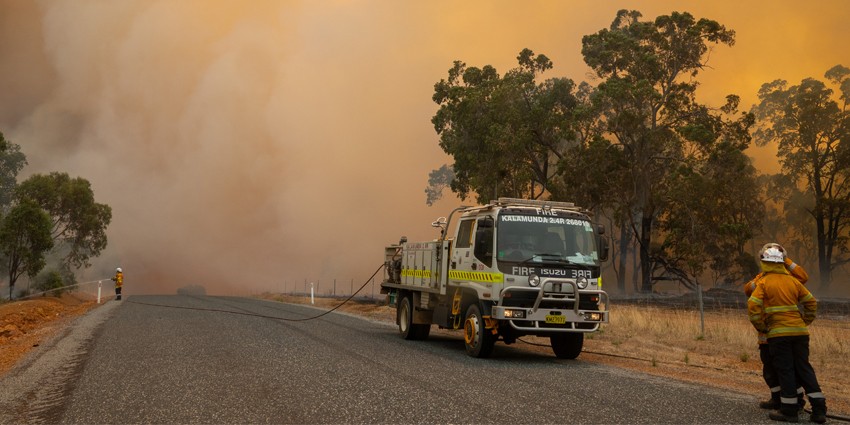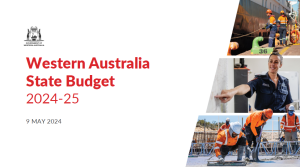Submission to Australasian Fire and Emergency Services Authorities Council
Independent Review of the 2021 Wooroloo Bushfire
08 October 2021
The Western Australian Council of Social Service Inc. (WACOSS) welcomes the opportunity to make a submission to the Inquiry into the Wooroloo Bushfire.
WACOSS is the peak body for the community services sector in Western Australia and works to create an inclusive, just and equitable society. We advocate for social and economic change to improve the wellbeing of Western Australians, and to strengthen the community services sector that supports them. WACOSS is part of a network consisting of National, State and Territory Councils of Social Service, who advance the interests of people on low incomes and those made vulnerable by the systems that have been put in place.
Introduction
During times of disaster and emergency, community service organisations mobile across impacted communities to provide emotional, financial, legal and material aid. Our submission will focus on those services who provide emergency relief and charity food at times of a disaster or emergency.
This submission will focus on numbers 3 and 4 of the Review’s Terms of Reference.
3. Examine the effectiveness of interagency coordination during the response and initial recovery phases of the incident.
4. Consider the effectiveness of the impact assessment processes employed in informing early and timely recovery efforts and consider the effectiveness of the recovery function post response phase.
While many community providers across the state understand both the role of the State Emergency Management Plan and the responsibility of the Department of Communities to coordinate welfare support and resources in the areas of emergency accommodation, emergency catering, emergency clothing and personal requisites, personal services, registration and reunification, and financial assistance, there is a lack of clarity as to how the Plan makes use of the broader emergency relief and charity food sector.
Emergency and recovery planning and coordination require a collective and collaborative approach to be effective and better respond to the inherent fatigue, confusion, and trauma within communities when navigating recovery processes. Key stakeholders with important roles and capabilities in response and recovery efforts – such as primary health providers, emergency relief and charity food providers, and other critical place-based community groups who support vulnerable groups like people with disabilities, people seeking asylum, multicultural groups and young people are not routinely included in state preparedness and resilience plans.
This submission will discuss the impacts observed during the Wooroloo bushfire of not having effective interagency coordination for emergency relief and charity food during the emergency response and initial recovery phases.
Preparation and rapid response by services
Western Australian emergency relief and charity food sectors are largely not funded via the process of the State Emergency Management Plan. Many services will, however, be drawn upon at times of disaster as they have strong local relationships as organisations who routinely deliver services across impacted areas.
Organisations from outside of the impacted communities may also send staff and resources to deliver food and material aid where gaps in support are identified. There will inevitably be a range of volunteer and community members who coordinate to provide relief both within and outside of impacted areas. However, the role of these service providers and community groups are poorly defined and understood across every stage of the disaster continuum.
As identified in the WA Food Relief Framework, emergency relief and charity food providers are rarely funded for program planning or coordination, and staffing. Instead, the funding they do receive is almost exclusively to be directly used to provide material aid and food.
Typically, the sector is funded through grants from the Commonwealth Department of Social Services and Lotterywest, as well as through fundraising and philanthropic donations. Grants are often for periods between 12 months or up to 3 years. Organisations then divide available funds monthly to determine the value of the relief they can provide to ensure their funds last the required length of time.
In times of disaster, organisations have no option but to draw upon those funds to provide material aid and food to impacted communities. This then has a flow on effect on the availability to provide emergency relief throughout the remaining grant period. This disaster spending often reduces available amounts of funding organisations can then provide to community members experiencing financial hardship outside of disaster impacted regions.
Recommendation: Develop an Emergency Relief and Charity Food Disaster Strategy that includes both the coordination of activated services and the adequate refunding of resources spent to provide relief to disaster impacted communities.
Coordination of services and support
The role of emergency relief and charity food relief providers both inside and outside of evacuation centres is critical during the emergency and initial recovery phases. A challenge faced by both services and people impacted by the Wooroloo bushfire, however, was the lack of coordination across the distribution of emergency relief and charity food. As most providers sit outside of state disaster planning, they do not have access to systems, frameworks and processes that assist in ensuring there is adequate planning, information sharing and coordination across emergency relief and charity food distribution.
As both volunteers and charity food providers attempted to coordinate the distribution of food across the impacted area, there was at times little understanding of how people were to store, cook
and consume donated foods. WACOSS heard from services that there a significant amount of donated food that had to be thrown away as those donating food did not understand that people impacted by disaster often lack critical resources such as cooking appliances, refrigeration, storage and other essential items.
Supporting food relief providers and volunteers to have the processes to coordinate efficiently with other providers is of fundamental importance. WACOSS heard from community members who felt frustrated by the complexity of navigating service and supports during both the initial emergency and early recovery periods. Community members also spoke of feeling disconnected from their community disaster planning process, including local logistical and social assets not being included and activated via local planning processes.
Community services who participated in this processes also echoed these experiences and suggested that as they are the first people to activate for the welfare and wellbeing of impacted communities, that they too should be better integrated with the disaster resilience planning that occurs. As people navigated fractured charity food systems, WACOSS heard many services talk of people being forced to drive long distances to access charity food that was often of an inadequate quantity and nutritional value.
The safety and nutritional quality of charity food being distributed must be taken into consideration. Due to the ad hoc nature of donations and the food supply, the lack of infrastructure and resources to support reliable and appropriate food services, and reliance on volunteers, models of charitable food service delivery generally do not meet consumer’s nutritional needs and preferences. Organisations need fit-for-purpose food relief nutrition policies, and to be supported to re-orientate them toward the procurement of appropriate and nutritious food for recipients.
WACOSS draws the Inquiry’s attention to the Law Council of Australia’s Disaster Legal Response Plan which provides a comprehensive and clear process for the activation of the legal and financial counselling sector during times of disasters. WACOSS recommends the development of emergency relief and charity food disaster response strategy which would ensure providers have clear access to the indicators, tools and resources required to deliver the best possible outcomes.
Emergency service planning needs to include the unique perspectives and contributions of community service organisations. While local organisations play a critical role in the local community’s disaster and resilience planning, state peak bodies can play a critical role across government and systemic strategy. The State Emergency Management Committee should undertake a comprehensive review of current strategic committees and members to identify opportunities’ to better include community service peak bodies across disaster and resilience planning.
Recommendation: Broaden the membership in emergency management committees to include representatives from the community service sector.
Recommendation: Develop and resource a State Food policy that enables a single point of assessment and referral, with a realistic understanding of what amounts and types of foods that will be required to support individuals and families while they are unable to purchase their own food.
Recommendation: Fund the Food Stress Index to provide accurate data on impacted populations, and the types and amounts of food required to provide for nutritional and appropriate food relief.
Assessment and Referral
While services across the community and volunteer sector were ready to provide support, their capacity to provide a holistic assessment and referral process that was appropriate for a disaster impacted individual or family was limited. People within evacuation centres were often required to provide evidence of hardship to access one particular support or service, and then be required to either present that evidence again or different evidence to access another service.
This is of particular concern, as each time a person is required to retell their personal experience, there is a risk of re-traumatising people as they seek help and support from multiple providers.
The issue of coordinating assessment and referral processes for people impacted is made more challenging when people do not present at an evacuation centre. During the Wooroloo bushfires, WACOSS heard of many people who moved from the impacted area to stay with family and friends in other regions. People who had been impacted by the fires would then be left to rely on their own natural networks to navigate the service system and locate appropriate support without understanding the supports and assistance they were entitled to receive.
In one particular instance, WACOSS heard of a family impacted by the bushfires who had reached out to a metropolitan charity food provider, after moving in with a group of friends. While the food relief provide was able to meet their immediate needs, they did not have the necessary understanding of the state disaster system to ensure this family made contact with the State Disaster Hotline, which would have undertaken a comprehensive assessment and referral process and ensured the family accessed their state disaster payments and entitlements.
As part of the mainstream delivery of aid, community service and volunteer providers utilise consent based approaches to sharing information, which enable the sharing of information between agencies. The Royal Commission into National Natural Disaster Arrangements recommended that all levels of government work towards a technical solution to the sharing of personal information that results in a ‘one-stop shop’ experience for those impacted by disasters seeking services and support.
Recommendation: Utilise a consent based approach and develop a technical solution to better enable the sharing of personal information.
Coordination of essential material aid as people return to clean up
Once the immediate threat to life has passed, residents will inevitably move back on to their property to begin the clean-up and rebuild process. In the aftermath of Wooroloo, residents who had lost sheds, tools and other essential items faced cleaning up their property without appropriate tools and PPE. Emergency relief providers have funding constraints that limit their ability to purchase the types of material aid required to support property clean ups. Items required included work boots, work clothing and clean up tools. Providers described the emotional difference between those people who were able to get back on properties with what they needed to clean up, compared to those who came back with little of what was needed.
The Royal Commission into National Natural Disaster Arrangements identified that clean up arrangements should be included in local disaster plans and take account of the identification and development of additional coordination tools and platforms. WACOSS has developed a platform that would enable the communities to better respond to clean-up coordination efforts. The Platform is called the Community Organised Resource Exchange (CORE) and enables the exchange of resources between charities, businesses and government departments.
CORE would provide a valuable resource throughout the disaster continuum as this function will be available to coordinate resources across preparedness, response and recovery. Local businesses and charities would be able to donate gifts cards or materials through CORE for the local recovery coordinator to then match to residents’ needs.
WACOSS would also like to highlight the significant work of Volunteers WA whose work critically contributes to the coordination of both spontaneous volunteers during times of emergency and disaster. WACOSS supports Volunteer WA’s request for further investment across online technologies that support their valuable work. The relationship between coordinating spontaneous volunteers and material and food donations have been a perennial issue in emergency management. The collaborative and coordinated work of Volunteers WA and WACOSS will see significant impact across better disaster recovery outcomes.
Recommendation: Include CORE in the local clean-up plan to assist local residents access what they need to clean-up their properties.
*
If you would like to discuss this submission further, please contact the WACOSS Community Relief and Resilience Coordinator Leela James at [email protected] or 6381 5300.




